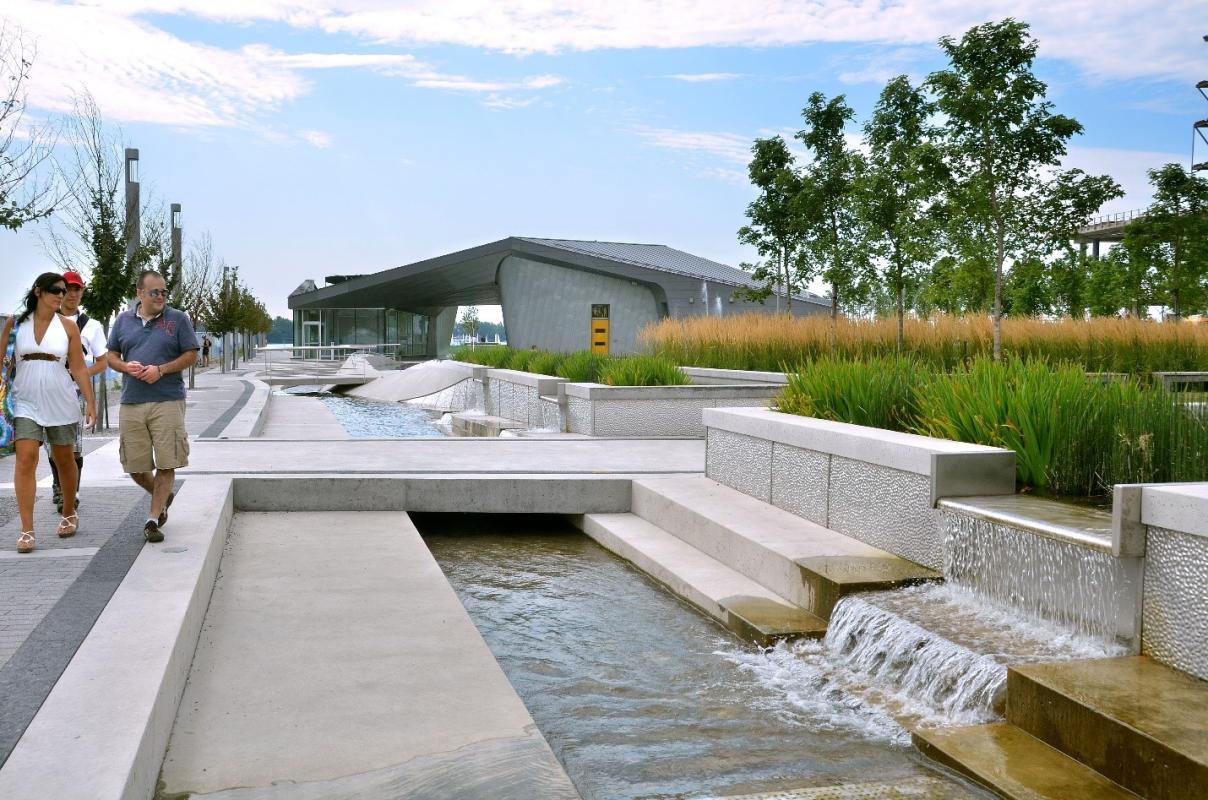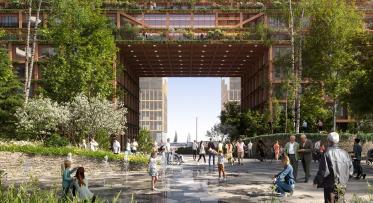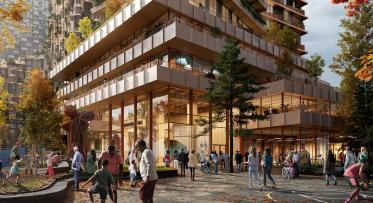Why is Corporate Social Responsibility and Sustainability Reporting Important?
Waterfront Toronto is the public advocate and steward of waterfront revitalization, mandated to deliver sustainable, mixed-use communities integrated with parks and open spaces.
PUBLISHED: DECEMBER 8, 2015
BY: ANNA PALAMARCHUK
Growing up in Toronto, the thought that our waterfront could be a world-class example of sustainable development and design excellence was unimaginable. For many decades the waterfront was viewed as undesirable – cut off by a highway, and filled with industrial activity and contaminated soil – it was written off by most people.
Fast forward to today and a new revitalized waterfront is emerging – one that offers a unique place for people to live, work and play. Since 2001, Waterfront Toronto has been leading an effort to revitalize the waterfront with sustainability at the forefront; elevating the revitalization efforts beyond simple real estate development by planning and creating green, livable, inclusive and prosperous communities. Today, when I walk or cycle with my family along the waterfront – through our new communities, beaches and parks – I’m proud of everything that Waterfront Toronto stands for and has accomplished.
 Our projects are reconnecting people with the waterfront and creating important economic, environmental, and social benefits.
Our projects are reconnecting people with the waterfront and creating important economic, environmental, and social benefits.
These values and accomplishments are detailed in our Corporate Social Responsibility and Sustainability Report (CSRSR). It was created to measure, understand, improve and communicate our performance, as well as to highlight our strengths and areas for improvement.
Since our initial 2012 report, many of our projects have moved from the planning, design and construction phase to completion. With an exciting new chapter of waterfront revitalization ahead of us, our 2015 CSRSR update offers an important review of our most recent accomplishments and looks towards our future work.
Why do we need a Sustainability Report?
Sustainability reporting has been around since the late 1980s and is done for a variety of reasons. For Waterfront Toronto, it:
- Demonstrates our commitment to transparency and accountability. We want you to understand our values and the work that we do. We report our performance in a variety of environmental, social and economic focus areas and explain how we work and how we make decisions.
- Communicates our achievements and challenges: Reporting provides a way for you to follow our progress, share our successes, and learn lessons.
- Improve performance: Collecting, measuring and analyzing data helps us understand areas where we may be underperforming, and enables us to modify internal processes and policies to achieve better results.
How do we report?
This report, which covers the period from 2001 to spring 2015, was prepared using the Global Reporting Initiative (GRI) framework, an internationally accepted independent standard for reporting on sustainability performance. Demonstrating our continued leadership in corporate reporting, Waterfront Toronto opted to use the latest version of the GRI Framework, the G4, as well as the Construction and Real Estate Sector Disclosure, which covers key sector-specific issues. The content is based on a set of performance measures that align with the three areas of sustainability referred to as the triple bottom line. This approach embraces an expanded set of standards for measuring success beyond economic accomplishments by also including social and environmental performance.
Rather than producing a traditional paper report, the CSRSR is presented in an online, web-accessible format. However, for those who prefer to view our content in a more traditional report format, a customizable PDF option is available that allows readers to select specific areas of interest.
Want to read the report?
Read the CSRSR [PDF] to learn more.




